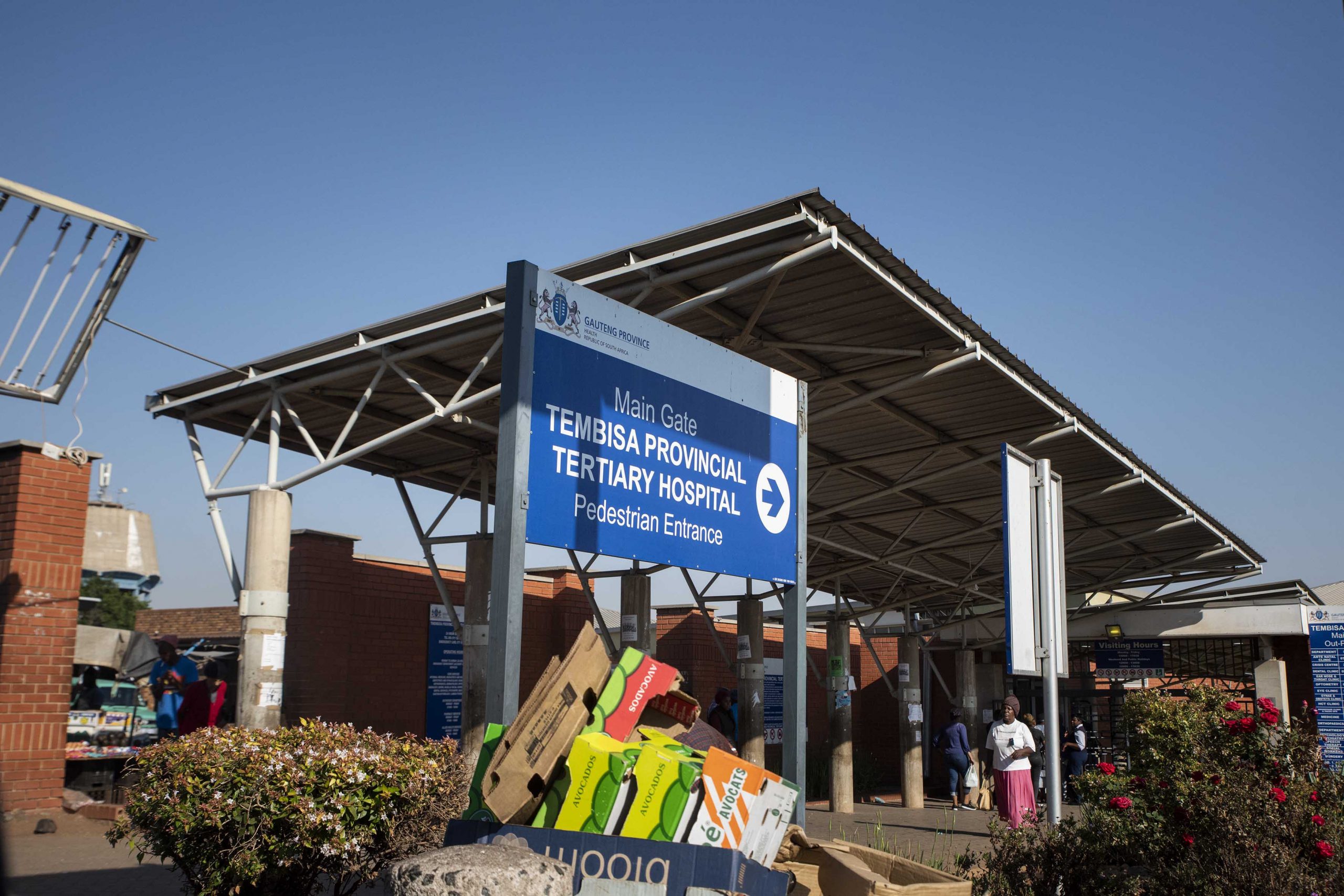NHI: Can the state pull it off?
National Health Insurance is offered as the solution to a failing public healthcare system, but experts warn that the state currently lacks the capacity to make it work.
Author:
25 October 2018

While health unions and activist organisations squabble over the implementation of the National Health Insurance (NHI), impoverished South Africans continue to bear the brunt of the failing public health system.
The NHI scheme is meant to bridge the gap between private and public healthcare in a bid to rescue the state’s crumbling health sector. But the National Department of Health has barely recovered from the 2016 Life Esidimeni crisis in which at least 144 psychiatric patients died after being moved to unlicensed NGOs.
Now it is battling staff and medical shortages – second- and third-line antiretroviral drugs are running out, and the lack of oncologists in KwaZulu-Natal means cancer patients have to wait three to four weeks for treatment.
Related article:
Systemic crisis
In June, Health Minister Aaron Motsoaledi acknowledged the poor management of a number of hospitals and the shortage of doctors and other skilled workers.
These systemic failures most affect impoverished families like Sibongile Ncumisa Peter’s. The 33-year-old hasn’t recovered from seeing her father, David Mtshintshi, 57, lying on the floor of Tembisa Hospital in a soiled nappy moments before he died.
“He had fallen. We tried to pick him up, but the nurses [scolded] us,” Peter told New Frame. Her father had bruises on his face. “You could tell that he had fallen the night before. Everybody was passing just in front of him lying there on the floor.” She said the family’s frantic calls for a doctor were ignored. Her father was declared dead minutes later.
“The nurse said to another nurse, ‘Please bring me the form, I want to write the time of death.” That is how Peter’s family learnt of her father’s death. “No one told us anything. No one counselled us.”
Peter’s claims that her father’s decomposing body was left outside the hospital’s mortuary fridge for three days. “In the mortuary, the dead bodies are on top of each other. Others have blood or you find that a mother passed away with a child. They don’t even cover them properly. You can see some women with their breasts out,” Peter said.
Speaking to New Frame, Lesemang Matuka, director of communications at the Gauteng Department of Health said Peter’s claims would be investigated thoroughly. “We always encourage our people not to wait whenever they are not happy with the services they are given at our facilities. They should complain immediately,” Matuka said.
Primary healthcare facilities not up to standard
The Department of Health claims that the NHI will improve services for members of the public. But general secretary of Treatment Action Campaign Anele Yawa, said there are loopholes in the Bill. “As much as we support the notion of universal health coverage for all, let us not misled the people and say, ‘NHI is going to address all health issues’.”
Under the NHI, clinics are meant to be the primary healthcare facility. The Bill states that clinics and hospitals will have to be accredited and compliant. But, according to the Office of Health Standards Compliance (OHSC), out of the 696 healthcare facilities inspected in 2016/2017, only two clinics and three hospitals scored 80%, while 165 clinics, four community health centres and three hospitals scored less than 40%. In total, only five health establishments were found to comply with the prescribed norms and standards.
“The report actually says when we implement the NHI, there are clinics that will be excluded because they don’t meet these norms and standards. Why do we rush NHI implementation, if primary healthcare facilities are not up to these standards?” Yawa asked.
An Esangweni resident who wished to remain anonymous stood in a queue for 10 hours at her local clinic. “I went to Esangweni Clinic [on 3 October]. I was there from 9am. I left the clinic at 6pm without being helped.” The resident was suffering from sharp pains. “They also told me they have had no contraceptive injections for the past two or three months. At this point, we are going to fall pregnant,” she said.
Related article:
New Frame contacted the clinic and confirmed that the facility has run out of contraceptives. Staff members don’t know when medication will be available again.
Nehawu’s media liaison officer Khaya Xaba approves of the Bill. “Currently the private sector spends 4.4% of GDP, which only benefits 16% of the population. The NHI seeks to correct the deeply entrenched inequalities as a result of contemporary and historical factors,” he explained.
How the NHI is supposed to work
The NHI scheme is being implemented in three phases. In the first phase, which was between 2012 and 2017, 11 districts across the country were piloted. Currently we are in the second phase, between 2017 and 2022, in which the Bill is being developed and an NHI fund established. This fund is supposed to finance the whole healthcare system. In the final phase, between 2022 and 2026, the Bill will be approved and healthcare services contracted.
Taxes will fund the NHI scheme. Members of the public who earn above a set amount will make the contributions. It will work in the same way as the unemployment insurance fund. Those who have registered as beneficiaries will use their NHI cards to get free services, though the Bill does not specify what these will include.
But many experts and activists agree that while South Africa desperately requires universal access to quality healthcare the state currently lacks the political will to develop the capacity to meet this urgent mandate.


